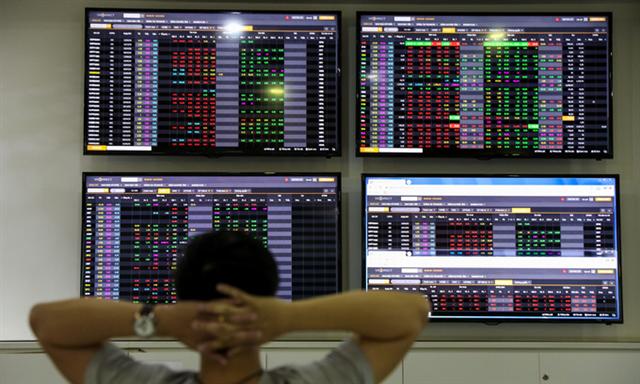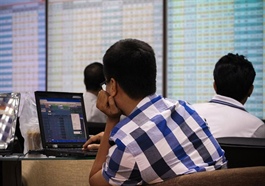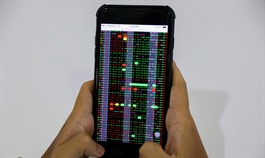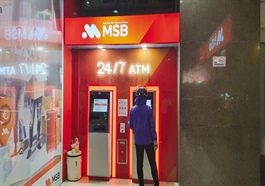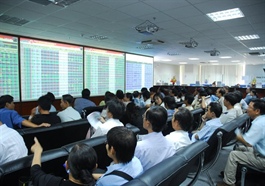Stock market rise might be speculative, experts warn
Stock market rise might be speculative, experts warn
Low interest rates in Vietnam have increased speculation and caused asset bubbles, including in stocks, financial experts have warned.
An investor looks at stock prices on a screen at a brokerage in Ho Chi Minh City. Photo by VnExpress/Quynh Tran.
|
Quach Manh Hao, a lecturer at the University of Lincoln, speaking at the 2021 Vietnam Economic Scenario Forum in HCMC on January 11, said: "The factors that drove economic growth last year were monetary and fiscal policies together with low interest rates, public spending and the government’s support for businesses."
"The stock market rise is due to low interest rates, not economic prosperity."
But those policies need be carried out with caution this year since the extremely low interest rates have created asset bubbles, he said.
The current loose monetary policy has not benefited the entire economy, but only large companies while small and medium-sized enterprises are struggling, he pointed out.
His warnings come even as the benchmark VN-Index is poised to climb to historic levels. The VN-Index rose 0.62 percent to 1,192.28 points on Tuesday, with steel, construction and real estate the best performers.
First-time investors are pouring cash into and driving the stock market. The number of retail investors entering the market hit a record number in December 2020 with 60,000 new accounts, which took the number for the full year to 392,000, twice as much as in 2019.
Can Van Luc, chief economist at the Bank for Investment and Development of Vietnam, too said the government should be mindful of the cash pouring into the stock market when interest rates are low, and warned of the threat of asset bubbles.
Andy Ho, managing director and chief investment officer of VinaCapital, Vietnam's leading investment fund, saw the stock market rise as unavoidable since "low [deposit] interest is driving the investment trend."
After the Central Bank lowered the short-term deposit interest rate capthree times in 2020, many people pulled their money out of banks to invest in other asset classes hoping for better returns.
Nguyen Xuan Thanh, a member of the Prime Minister’s Economic Advisory Board, explained that the stock market is growing because of the firm belief in the effect of the vaccine though the expected revival of the economy, FDI inflows, resumption in domestic consumption, and growth in private investment all have a bearing.
The government has set an economic growth target of 6.5 percent, but the International Monetary Fund, World Bank and others expect 7-8 percent growth, he said.
"Therefore, domestic investors are pouring their money into the stock market regardless of the risk."


